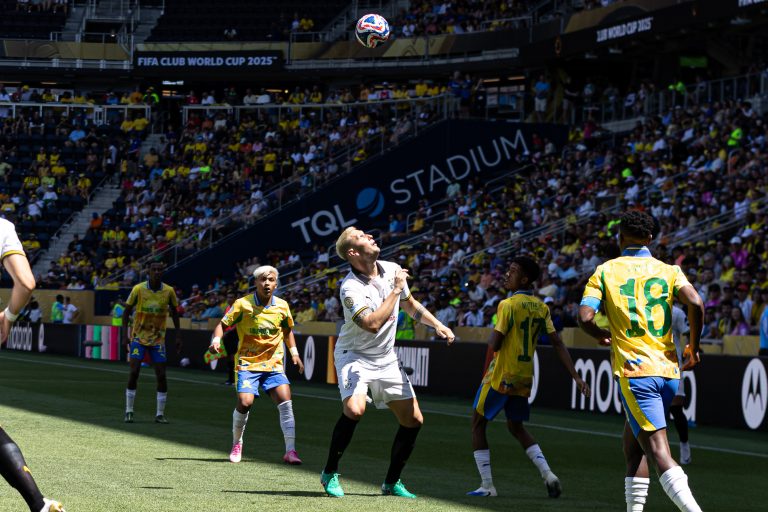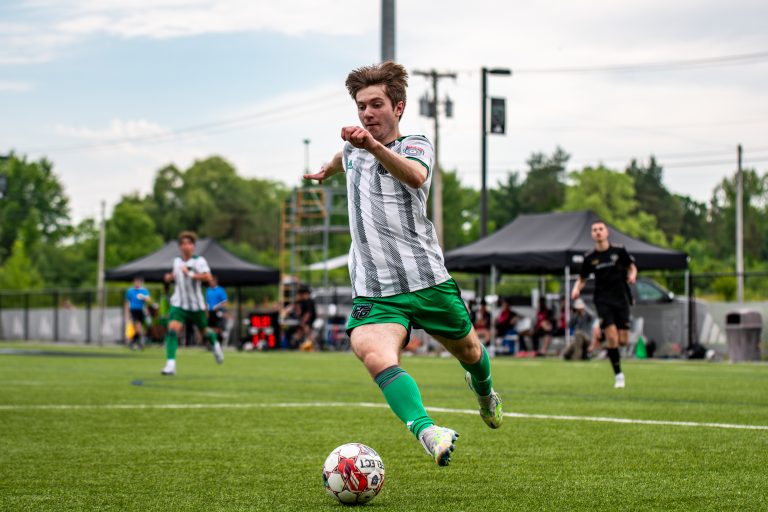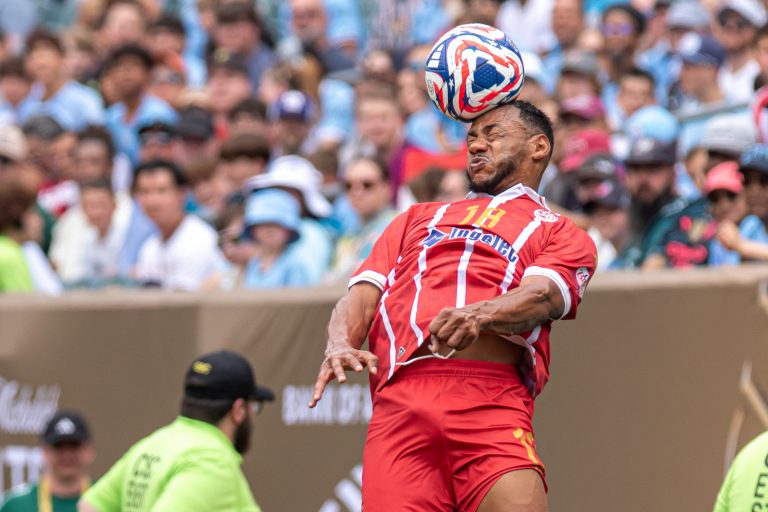1. What can we expect to see from Eastbourne Borough FC this season?
A bit more stability for a start. Last season, manager Tommy Widdrington’s first full season in charge, was very much one of transition. He swept away most of the squad from the previous regime, some of whom had been at the club for up to 10 years, and took time to establish which of his new players were worth keeping on. Results suffered as a result and they look were looking over their shoulder at the relegation zone for a bit, until a run of decent performances late in the season. By that time he’d already agreed longer-term contracts with key personnel and has built this season’s side around them. They have won three and drawn one of their opening four games to put them top of the Conference South, although it’s obviously very early days. Most supporters would be happy with a mid-table finish, especially as Borough are well down the league in terms of playing budget, but these early performances are sparking a little bit more optimism.
2. What can we expect from Brighton & Hove Albion? What did Dick Knight do for the club as a whole?
The acrimonious departure of Gus Poyet, who had transformed Brighton from a struggling third-tier side into a club challenging for promotion to the Premier League, leaves Brighton in a somewhat transitional state themselves. Poyet was universally lauded for his commitment to attractive football but was also criticised for not having a Plan B, something which cost them in their promotion playoff semi-final with archrivals Crystal Palace. The manner of his departure, amid rows with the board over unspecified breaches of his contract, split supporters down the middle but they are now having to unite behind new boss Oscar Garcia, a former coach of Barcelona’s youth sides. Brighton haven’t made the best of starts to the new season but if Garcia can get his ideas across to the players sooner rather than later, I wouldn’t rule out another bid for the playoffs. Knight will forever be held up as a hero at Brighton. A lifelong Albion fan, he became chairman in 1997 having led the campaign to remove the previous board after they sold the club’s Goldstone Ground home to property developers. He led them out of the financial wilderness and was in charge for 12 years until he sold up in 2009 to local poker millionaire Tony Bloom, who funded the £93 million Amex Stadium and other substantial investments on and off the pitch. Knight is now life president of the club and has a bar named after him in the stadium.
3. How concerned should fans be about a BBC report that a third of owners at Championship and League One clubs are considering selling in the next 12-18 months?
It certainly highlights the financial plight of some clubs in the Football League, who essentially make regular massive losses, propped up by shareholders and investors, as they chase promotion. I imagine most are talking hypothetically, if a buyout package was on the table, rather than actively looking to sell, but even so it’s a damning indictment of the way football is financed in this country.
4. What non-league teams should be looked at for making the jump to league football?
Most of the teams in the Conference Premier capable of mounting a serious promotion challenge are former League sides looking to bounce back. Barnet, now managed by former Dutch international Edgar Davids, have moved out of their historic Underhill stadium but don’t seem to be suffering a hangover from dropping out of League Two last season. Cambridge, Grimsby and Lincoln, three other former League clubs, have also made strong starts to the campaign. I certainly expect Grimsby to be a contender, but question marks remain over Cambridge and Lincoln’s consistency. Kidderminster, who aside from a five-year spell in the Football League in the early 2000s have nearly always been a traditional non-League club, are well-equipped for a playoff challenge, and I’d tip Forest Green Rovers, a small club backed by some decent money, as promotion challengers as well. Aldershot, in financial turmoil after their relegation from the League, will find it nigh-on impossible to make an instant return as they started the season saddled with a 10-point deduction.
5. What League 2 clubs might be in danger of relegation to the Conference Premier?
A very difficult question to answer. Accrington have shipped 10 goals in their first four games and may be in for a struggle, as might Dagenham, who only stayed up on the final day of last season. Hartlepool suffered a dismal campaign last year, finishing bottom of League One, and they will need to improve on their early showings to avoid a double dip. AFC Wimbledon look an improved side on last season, while the two newly-promoted sides, Newport and Mansfield, should finish in at least mid-table.
6. Why is non-league football important to the greater English game?
September 7th is the fourth annual Non-League Day, which aims to promote the ‘grassroots’ game to a wider audience. It is held on a weekend when there are no Premier League or Championship matches due to the international fixtures and many non-League clubs offer reduced (or in some cases free) entry to their matches to season ticket holders of Premier League/Championship clubs. Although being a football fan usually involves blind loyalty to ‘your’ side, many are turning their back on professional football as the costs of tickets/refreshments/travel spirals out of control. Those who have been priced out of going to watch top flight clubs often get their football fix more locally and non-League attendances are seeing a boost as a result.
NLD is gaining a higher profile each year, thanks to backing from many pro clubs and media organizations, and fans are encouraged to see what’s going on at a club near them which they may never have known existed. What’s so attractive about non-League football is the community aspect of it. Bar the Conference Premier, the vast majority of non-League clubs are almost exclusively volunteer-run and you can get to know people at the club (including the players). Ticket prices are much more affordable (although still not cheap when you compare it to the level of football you can watch for the same price on mainland Europe) and you can often stand anywhere in the ground without the need for fussy stewards!
7. Finally how do you see the EPL finishing out? What teams could be headed for silverware and spots in Europe? Who is in danger of being relegated?
It is hard to look beyond the moneyed three of Manchester United, Manchester City and Chelsea for the title – all three of whom have new managers at the helm of course. United virtually won the title last season by default, with other challengers falling away, but will face a much bigger test this season. David Moyes has stepped into the almost unfillable shoes of Sir Alex Ferguson and must first reassure his own fans that he is the right man to replace the legend in the Old Trafford hotseat. He has already come up against Jose Mourinho, now back at Chelsea, in a lifeless 0-0 draw which sadly failed to showcase the EPL in the way we’d hoped. Chelsea have plenty of attacking firepower, if Mourinho is prepared to unleash it, but they remain vulnerable at the back, particularly when talismanic skipper John Terry is missing. Manchester City have bolstered their squad under Manuel Pellegrini but defeat to newly-promoted Cardiff City in their second match has raised question marks over their defence. The expected world record sale of Gareth Bale to Real Madrid is funding a late transfer spree at Tottenham, who are shelling out £25.7m on Roma forward Erik Lamela and £8.5m on Romanian defender Vlad Chiriches. They will compete for fourth yet again with north London rivals Arsenal, who are yet to make a serious move in the transfer market this summer, much to the annoyance of their supporters. Liverpool look an improved side under Brendan Rodgers and seem likely to keep hold of striker Luis Suarez but they’re still short of Champions League qualification.
Of the newly-promoted sides, I can’t see Hull or Crystal Palace having enough to stay up but Cardiff have demonstrated their capabilities in beating Man City. The two bitter north east rivals, Newcastle and Sunderland, are also likely to struggle this season. Newcastle are in turmoil at present, with a bizarre internal battle between manager Alan Pardew, newly-installed director of football Joe Kinnear, and owner Mike Ashley being played out at the same time as they’re struggling with injuries and poor performances on the field. I don’t see Sunderland boss Paolo Di Canio having the right character to lift a team out of relegation danger.
Andrew Raeburn is a freelance sports journalist and commentator who specializes in English football, particularly the non-League game. He also commentates on Champions League and Europa League matches for UEFA as well as live matches from leagues as diverse as Greece, Peru, and China and writes for the West London Sport and SussexFootball.com websites. Raeburn can be found on Twitter @andrew_raeburn or you can visit www.andrewraeburn.co.uk.





